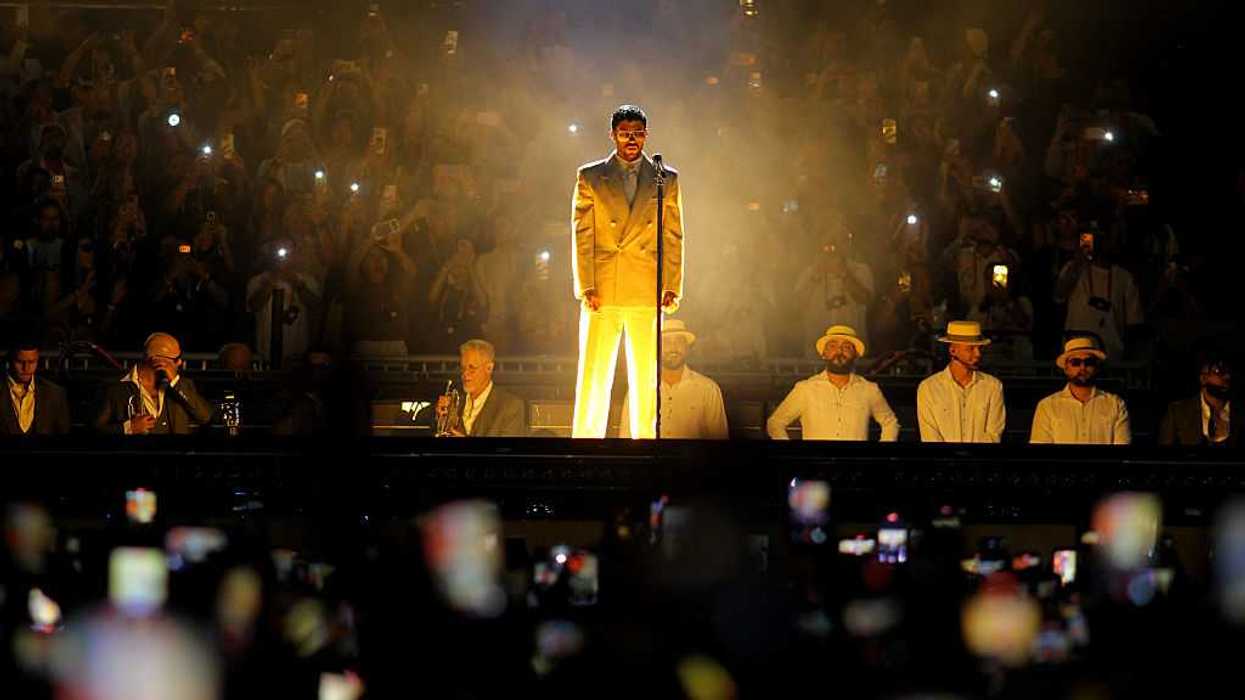Stefflbauer is a Middle East expert and the founder and CEO of FrauenLoop, a computer programming school for resident, immigrant and refugee women in Germany. She is a Public Voices Fellow with The OpEd Project.
If you’re tired of hearing individuals weakly apologize for racism, then you’re probably exasperated by technology companies that do the same thing. The latest technology bias story has Instagram apologizing for adding “terrorist” to some Palestinian user profiles. That news provides another example of how tech companies regularly amplify social discrimination. Rather than being an alleviator of racial bias and a tool of racial justice, online technologies have the power to super-charge the dissemination of dehumanizing stereotypes and racist, sexist labels. Whereas, previously, you might have risked facing one person’s biased opinions off-line, online technologies can now reduce millions of people to stereotypes and caricatures that its victims are powerless to fight.
Black people already know that technology can be discriminatory, whether it identifies a person as an ape or fails to work altogether when dark-skinned people use it. Women have been raising alarms about bias in tech for years, as was the case when a secret Amazon hiring algorithm was found to discriminate against women. Or when Apple Pay’s credit algorithm awarded women lower credit scores than men. But women and Black people aren’t alone: In 2017, Chinese customers received refunds from Apple after claiming that the iPhone X face recognition couldn’t tell them apart. These examples show that technology is able to replicate human biases, in part, because discrimination by humans is restricted by law, while discrimination via computerized technologies oftentimes is not.
The public is quick to assign blame when it comes to people who are found to behave in a discriminatory manner. However, when technology products encourage discrimination, the public response may be too little, or come too late. For Rohingya, Turkish, Uighur and now Palestinian Muslims, a legal settlement after the fact may not be as effective as proactive regulations that prevent discrimination in the first place.
As a Black American, I am witness to repeated discrimination in our country by police and educational figures who choose to treat people differently based solely on their race. As a scholar of Middle East history who spent years studying in North Africa and the Arab Levant, I see the same type of bigotry encoded into popular technologies. To be sure, you don’t need to personally suffer discrimination in order to recognize that it’s wrong. Many American Jews, for example, protested against the discriminatory treatment of Black Americans during the U.S. civil rights era. Today, Jewish Voice for Peace is publicly taking a stand against bigotry towards other groups. You don’t need to be Arab or a Muslim to recognize that tech companies discriminating against those groups leads us to becoming a two-class society — something this country has seen before.
It’s time for unequal treatment of consumers by the largest tech companies on earth to end. Remember the fictional country Wakanda depicted in the movie “Black Panther”? That film drew millions of viewers worldwide in 2018, partly because audiences of color knew that they would visit a place where racial stereotypes would not appear. Tech companies have been promising people of color an online Wakanda for years, but none of them — not even Mark Zuckerberg’s immersive Metaverse — have delivered. We never know when harmful social or cultural biases will show up, but whether it is chatbots, algorithmic photo filters or predictive algorithms, examples of tech-enabled discrimination still abound.
When we have leaders in Congress who either don’t understand tech or don’t care, and a tech industry that seemingly is more concerned with profits than justice, it is up to citizens to make a difference. We can speak up in protest, the way that people all over the world are protesting against the spread of offline ethnic and racial discrimination and violence. We can also write to elected representatives to demand appropriate regulation, audits and heavy fines for companies whose technology biases harm us all by stereotyping us or by arbitrarily labeling us as “undesirables.”
With the integration of artificial intelligence into our lives at an ever increasing rate, now is the time to take action to prevent human biases getting regurgitated by technology. As the latest Instagram example proves, that future may already be here.



















